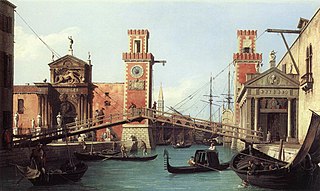A thesaurus, sometimes called a synonym dictionary or dictionary of synonyms, is a reference work which arranges words by their meanings, sometimes as a hierarchy of broader and narrower terms, sometimes simply as lists of synonyms and antonyms. They are often used by writers to help find the best word to express an idea:
...to find the word, or words, by which [an] idea may be most fitly and aptly expressed
Æthelnoth was the archbishop of Canterbury from 1020 until his death. Descended from an earlier English king, Æthelnoth became a monk prior to becoming archbishop. While archbishop, he travelled to Rome and brought back saint's relics. He consecrated a number of other bishops who came from outside his archdiocese, leading to some friction with other archbishops. Although he was regarded as a saint after his death, there is little evidence of his veneration or of a cult in Canterbury or elsewhere.

An arsenal is a place where arms and ammunition are made, maintained and repaired, stored, or issued, in any combination, whether privately or publicly owned. Arsenal and armoury or armory are mostly regarded as synonyms, although subtle differences in usage exist.

The Keeper or Master of the Rolls and Records of the Chancery of England, known as the Master of the Rolls, is the President of the Civil Division of the Court of Appeal of England and Wales and Head of Civil Justice. As a judge, the Master of the Rolls is second in seniority in England and Wales only to the Lord Chief Justice. The position dates from at least 1286, although it is believed that the office probably existed earlier than that.
The Peripatetic school was a philosophical school founded in 335 BC by Aristotle in the Lyceum in Ancient Athens. It was an informal institution whose members conducted philosophical and scientific inquiries. After the middle of the 3rd century BC, the school fell into decline, and it was not until the Roman Empire that there was a revival.

The Chief of the General Staff (CGS) has been the title of the professional head of the British Army since 1964. The CGS is a member of both the Chiefs of Staff Committee and the Army Board; he is also the Chair of the Executive Committee of the Army Board. Prior to 1964, the title was Chief of the Imperial General Staff (CIGS). Since 1959, the post has been immediately subordinate to the Chief of the Defence Staff, the post held by the professional head of the British Armed Forces.

A pickaxe, pick-axe, or pick is a generally T-shaped hand tool used for prying. Its head is typically metal, attached perpendicularly to a longer handle, traditionally made of wood, occasionally metal, and increasingly fiberglass.

A head is the part of an organism which usually includes the ears, brain, forehead, cheeks, chin, eyes, nose, and mouth, each of which aid in various sensory functions such as sight, hearing, smell, and taste. Some very simple animals may not have a head, but many bilaterally symmetric forms do, regardless of size.
The term predicate is used in two ways in linguistics and its subfields. The first defines a predicate as everything in a standard declarative sentence except the subject, and the other defines it as only the main content verb or associated predicative expression of a clause. Thus, by the first definition, the predicate of the sentence Frank likes cake is likes cake, while by the second definition, it is only the content verb likes, and Frank and cake are the arguments of this predicate. The conflict between these two definitions can lead to confusion.

The eaves are the edges of the roof which overhang the face of a wall and, normally, project beyond the side of a building. The eaves form an overhang to throw water clear of the walls and may be highly decorated as part of an architectural style, such as the Chinese dougong bracket systems.

The chair, also chairman, chairwoman, or chairperson, is the presiding officer of an organized group such as a board, committee, or deliberative assembly. The person holding the office, who is typically elected or appointed by members of the group or organisation, presides over meetings of the group, and is required to conduct the group's business in an orderly fashion.

Saint Cucuphas is a martyr of Spain. His feast day is 25 July but in some areas it is celebrated on 27 July to avoid conflict with the important feast day of Santiago, the patron saint of Spain. His name is said to be of Phoenician origin with the meaning of "he who jokes, he who likes to joke."

Events from the year 1622 in Ireland.
TL;DR or tl;dr, short for "too long; didn't read", is internet slang often used to introduce a summary of an online post or news article. It is also used as an informal interjection commenting that a block of text has been ignored due to its length.
The Archdeacon of Cornwall is a senior cleric in the Church of England Diocese of Truro.
The parliamentary visitation of the University of Oxford was a political and religious purge taking place from 1647, for a number of years. Many Masters and Fellows of Colleges lost their positions.








